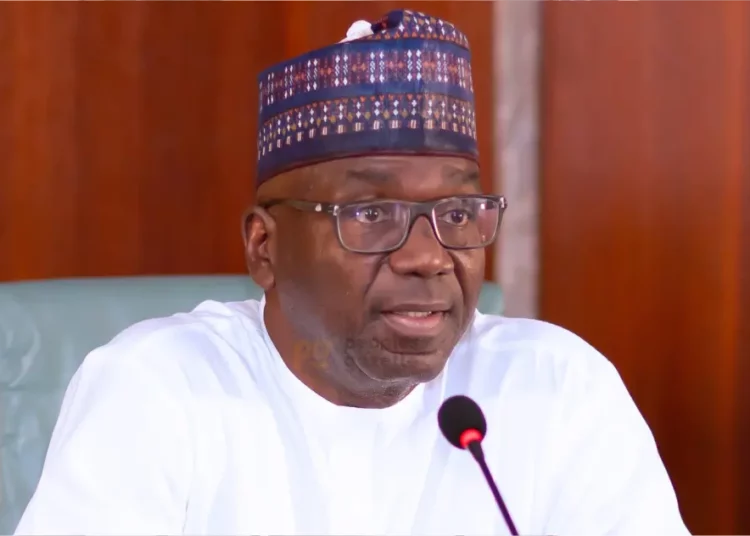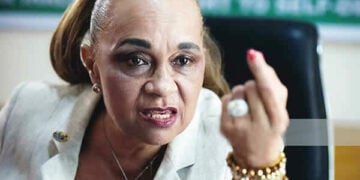You were a product of the political revolution in Kwara State that championed youth and female inclusion. How does the Women’s Reserved Seats Bill reflect the ideals that brought you into office?
As someone who emerged through the progressive political atmosphere fostered by Governor AbdulRahman AbdulRazaq and the “Kwara Must Change Movement which worked tirelessly to end long-standing political exclusion in our state , I see the Women’s Reserved Seats Bill as more than just legislation. For me, it is a constitutional endorsement of the values we fought for in Kwara: inclusion, fairness, and generational justice. This bill reflects a national step toward institutionalising equity, particularly for women who have historically been sidelined in governance.
For me, this is more than a policy proposal, it represents both a personal and political victory in the making. I emerged from Kwara’s Otoge political revolution, a movement defined by bold action that created space for young and previously marginalised voices.
The Women’s Reserved Seats Bill embodies the spirit of movements like Kwara Must Change: it offers structural solutions to systemic exclusion. It is a national acknowledgment that opportunity should not be determined by gender, a meaningful step toward justice for millions of capable women who have long been shut out of leadership spaces.
In what ways will the Women’s Reserved Seats Bill enhance the quality and legitimacy of Nigeria’s democracy?
A truly representative democracy must mirror the full diversity of its people. With women holding just 3.6% of seats in Nigeria’s legislature, far below the global average of 26. 5 percent, our democracy remains incomplete.
Countries that have taken bold, intentional steps to correct this imbalance have reaped the benefits. Rwanda, for example, reserved 30 per cent of seats for women and now boasts over 60 per cent female representation in parliament, contributing to more inclusive and effective governance. India recently passed a bill reserving 33 per cent of parliamentary seats for women, recognising that democracy gains strength when all voices are heard.
By bringing in perspectives that have long been excluded, the Women’s Reserved Seats Bill will strengthen the legitimacy of our institutions and ensure that policies are shaped by the full breadth of our national experience. It is not just a question of fairness, it is a path to smarter, more responsive governance.
Why does women’s underrepresentation persist in Nigerian politics, even after decades of advocacy and awareness efforts?
Because our approach has been too moral rather than structural. We’ve spent years appealing to conscience instead of redesigning the system. In Kwara, real change happened when we combined civic pressure, grassroots organizing, and governance reforms. A movement like Kwara Must Change played a critical role in pushing that shift.
Without clear structural mechanisms like reserved seats, women continue to be sidelined by entrenched barriers, money politics, political violence, and internal party bias. Countries like Rwanda, Pakistan, and Uganda have used legal frameworks to embed inclusion in their political systems. Nigeria must now do the same if we’re serious about equitable representation.
Do you believe Nigerian women can currently compete on equal footing in politics without reserved seats? If not, what are the biggest barriers?
Not yet. The political terrain remains deeply hostile to women. Even in my case, I was elected at 26. It took an enabling political environment created by Governor AbdulRahman AbdulRazaq and strong civic pressure from movements like Kwara Must Change to make it possible.
Across Africa, countries have recognsed that inclusion doesn’t happen organically, it must be engineered and protected. Uganda reserves one seat per district for women, and Tanzania guarantees 30 per cent of parliamentary seats. These are structural solutions to systemic exclusion.
Nigeria must confront this reality. Without deliberate legal mechanisms, women will continue to be shut out by money politics, violence, and entrenched bias within political parties.
What impact would 74 additional reserved seats in the National Assembly and 116 across state assemblies have?
It would rebalance our democracy. Imagine 74 new voices bringing fresh energy to legislation like in Mexico and Argentina, where gender parity improved governance. In Kwara, women-led leadership changed how government functioned. Nationally, it would shift policy priorities and make politics more inclusive.
Critics say this will increase the cost of governance. Is that a valid concern?
It’s a short-sighted view. True democracy has a cost but exclusion is far costlier. Rwanda didn’t collapse under 60 per cent female representation; it thrived. Inclusion leads to better governance, accountability, and peacebuilding. The returns outweigh the cost.
Are political parties ready to support this change?
Change is never easy, but it’s possible. Kwara showed that with political will and civic pressure, parties adapt. Legal quotas in places like Nepal and Pakistan forced parties to open up. Nigeria needs the same push.
How can parties implement the bill effectively?
Through a mix of internal quotas, regional allocations, and monitored primaries. INEC should oversee compliance, and parties must face sanctions for non-compliance. Legal backing is essential.
Should these reserved seats be permanent?
No. They should be reviewed after two or three election cycles. The goal is transition, not permanence. Just like Tunisia and France did after early reforms.
What does 3.6 per cent female representation say about Nigeria’s commitment to inclusion?
A: It shows we’re lagging. Despite being part of the Beijing Declaration, we trail behind countries like Ethiopia and South Africa. As Africa’s most populous nation, Nigeria must lead, not follow.
How are male lawmakers responding to this proposal?
There’s growing support. In Kwara, male colleagues and Governor AbdulRazaq backed women’s leadership. Equity isn’t about replacing men. It’s about completing leadership.
Could this open the door to other inclusion reforms like for youth or people with disabilities?
Absolutely. The logic for gender inclusion also applies to youth, disability, and diaspora representation. My own election was part of a youth movement. This bill can spark wider reforms.
What kind of public education is needed to support the bill?
A national campaign like Kwara Must Change led using media, schools, religious and community leaders. This isn’t about women’s entitlement; it’s about national development.
How should women prepare to take advantage of these seats?
Holistically. They must build capacity in policy, campaigns, and leadership. Reserved seats offer the opportunity women must be ready to lead with excellence.
What’s your message to women watching this moment and feeling excluded from politics?
You belong here. Don’t wait. Organize, learn, run, and lead. I’m proof that politics can change and so can you. Nigeria needs your voice.






